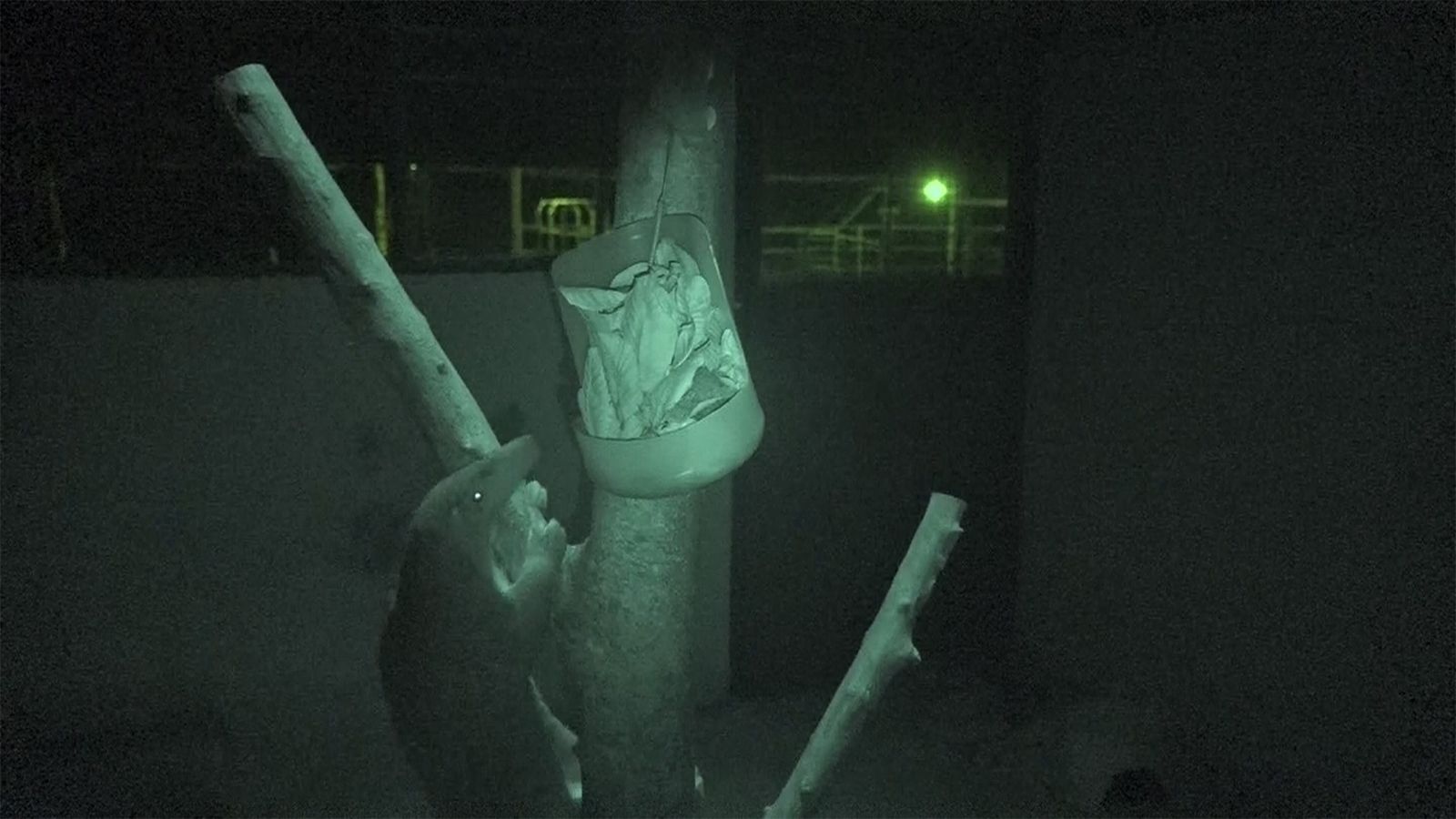A new study led by Hunter College psychology professor Joshua Plotnik, PhD, and master’s degree student Joshua DiPaola assesses the ability of the Sunda pangolin—one of eight species of pangolins—to forage for food using sight, sound, and smell.
The study is especially timely, given the pangolin‘s hypothesized role in the coronavirus crisis as a possible vector for SARS-CoV-2 between bats and humans. To date, little research has been done on pangolins—a mammal that resembles an anteater or an armadillo, but is related to neither—despite the fact that all eight pangolin species are threatened, some critically endangered, and yet they are among the most highly trafficked mammals on the planet. While some people pursue the pangolin’s meat as a delicacy, the animal is more broadly sought for the perceived medicinal value of the keratin scales that cover its body. (Pangolins are the only known mammal with such scales.) While science has yet to discover any such medicinal value, the scales are still sought after by practitioners of traditional Chinese medicine, in particular. One Chinese customs seizure in late 2019 stopped the trafficking of tons of pangolin scales, believed to have been harvested from at least 50,000 pangolins—and that seizure is far from unique.
“We’re aware of the threat to these unique animals, but their behavior has been little studied by the scientific community before now, and we hope our research is a starting point from which future conservation initiatives can build,” said DiPaola, who has been studying pangolins as part of the Animal Behavior and Conservation Master’s Program at Hunter College. “Ironically, at this point, poachers have much more knowledge about pangolins in the wild than do conservationists.”
Published in the journal Scientific Reports, the article “Investigating the Use of Sensory Information to Detect and Track Prey by the Sunda Pangolin (Manis javanica) with Conservation in Mind” details DiPaola’s study to assess the mammal’s use of sight, sound, and smell in foraging for one of its preferred foods, ants.
The study focused on two wild-born adult pangolins housed in a veterinary hospital in Thailand. They engaged in an object-choice task in which only one of two containers was baited with food; they were able to find food with olfactory information alone, but not with visual or acoustic information alone. Additional experiments suggested that the pangolins may have the capacity to exploit scent trails left by prey, which can be tracked to a final source.
“We want to protect endangered species like the pangolin, and to do so, we need to understand them better,” said Plotnik, who has studied animal behavior and cognition for more than a decade. “Protecting wildlife can be important for protecting people as well, a fact brought to light by the coronavirus pandemic, which is likely tied to illegal wildlife markets. Research is key to helping preserve species in the wild, reduce conflict between wildlife and people, and minimize health risks for both human and animal populations. We need to rethink our relationship with the natural world.”
“I saw a pangolin for the first time on a trip to Southeast Asia. While I was initially intrigued by how unique they were from other living mammals, I became committed to raising awareness about their conservation once I learned how seriously threatened they were in both Asia and Africa,” said DiPaola. “Pangolins are a challenging species to keep alive in captivity, much less to breed, so conservation in their natural habitat is critical.”
The journal article and three videos of the experiments are available.
Marnoch Yindee of Mahidol University in Kanchanaburi, Thailand was a co-author of the article.


